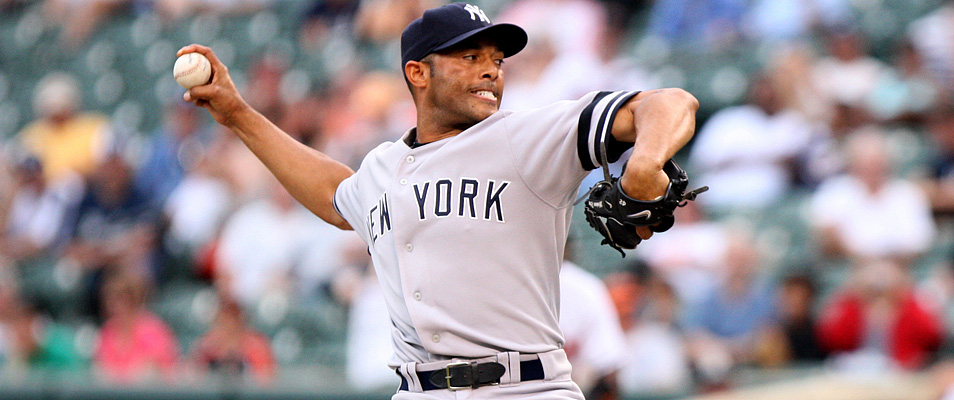Mariano Rivera pitching for the New York Yankees in 2007. Photo by: Keith Allison
By Joshua Colon
Although the number of Latino players continues to grow in both the major and minor leagues of baseball, many still face discrimination for not speaking English, says Rafael Hermoso.
Hermoso is the author of “Speak English! The Rise of Latinos in Baseball.” Latinos dominate the sport, Hermoso says, with players such as Jose Reyes, David Ortiz, Mariano Rivera, leading the lineups of the best teams. Many of these players are from outside the U.S., from countries such as the Dominican Republic, Puerto Rico, Venezuela, Cuba, and Mexico.
Hermoso, who has covered the major and minor leagues for several decades, says that while things are improving, players are still subject to bullying when they don’t speak English well. Hermoso collaborated with photographer Rita Rivera on the book, which uses stories of 45 players to illustrate the collective history of Latinos in baseball. The duo gave a talk at the Bronx Music Heritage Center in September.
Hermoso recounted being in the clubhouse after a game and hearing coaches telling established players and stars to speak English, even though they knew few words. According to Hermoso, the coaches’ demands would elicit cringes from players who later said that they still felt like they were being treated differently.
Rita Rivera related an incident when she was on the field taking a photograph and she heard a coach yelling at a player to “speak English.” Rivera said, “I was in complete shock and couldn’t believe that he would do such a thing.”
“’Speak English! The Rise of Latinos in Baseball’ chronicles how much or how little has changed since the first Latino played in the big leagues in the 19th century,” says Elena Martinez, a folklorist who works at the Bronx Music Heritage Center.
During the discussion, Hermoso spoke of this history and read from his book. “Although Latinos in baseball today still speak of being apart and always remembering the struggle, they have advantages over those who came 50 years ago.”
Players such as the Alous, Vic Power, and Rico Carty worked extremely hard to earn their place in the game in the years following the first Latino to play in the major leagues, he said.
Major League teams often look for young talented players that will “cost” less, said Hermoso. For example, young Latinos who are eager to get out of poverty or who want to help their families. Cuban players, he said, knew they were possibly leaving their homeland for the rest of their lives. They were risking it all just for the chance to play in the U.S., a country where discrimination against minorities was prevalent in the 1950s and 1960s.
Audience member Marie Gomez suggested that Latinos feel more pressure to succeed and may be more likely to use performance enhancing drugs like steroids. “If Alex Rodriguez was of different ethnicity, would he be treated as he is now?” she asked the group.
Alex Rodriguez is a special case because he was born in the U.S. and therefore is seen as not having the “same” difficulties as a player who defected from Cuba for example, said Hermoso.
“If he was black or white, he would be looked at completely differently,” said Ramon Rivera, 57, also in the audience. Rivera brought up how Barry Bonds and Roger Clemens, both whom have been linked to steroids, seem to have vanished from the public eye.
Hermoso replied that the key difference is that Rodriguez is still playing, while the other two have been retired and out of baseball for years.




